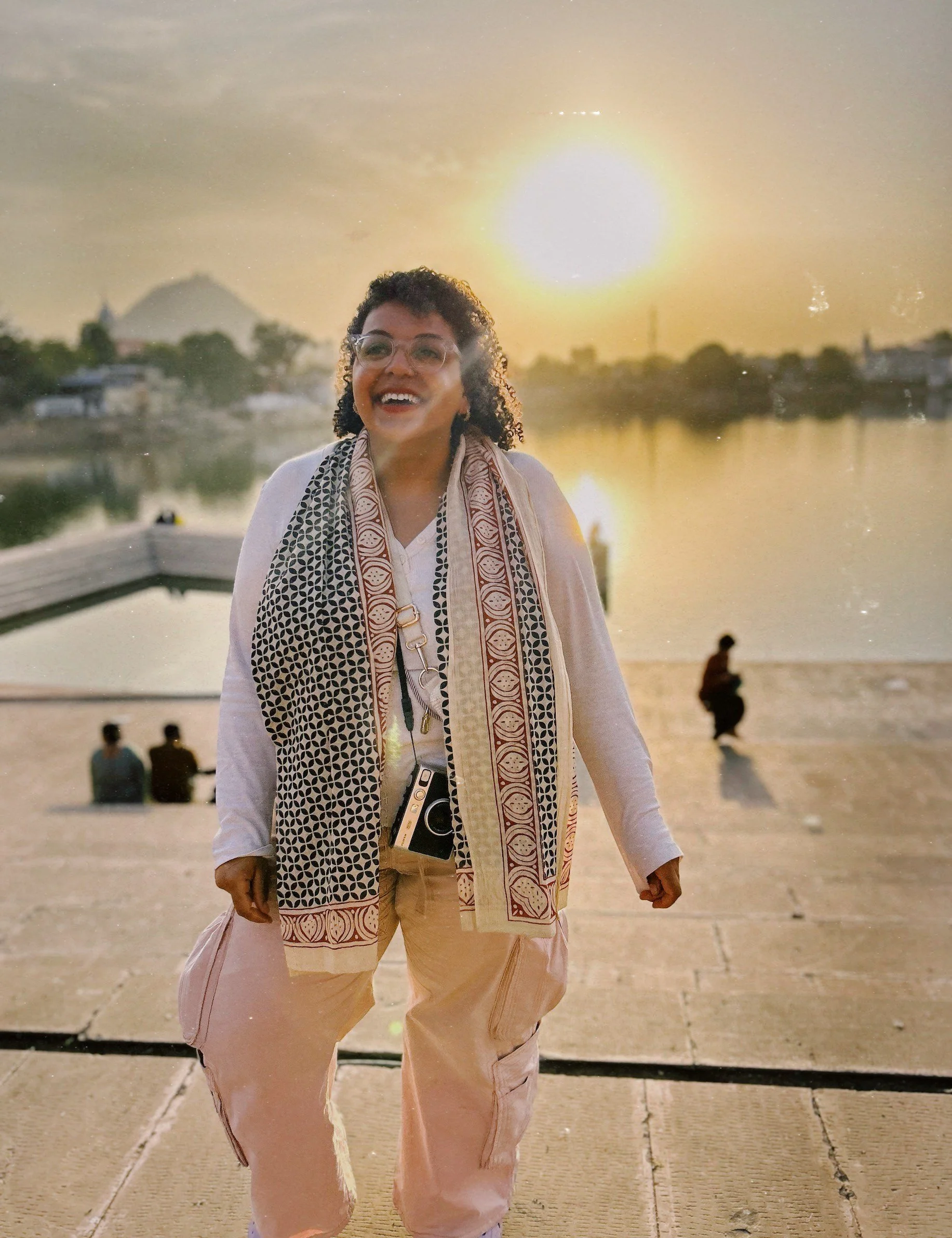q&a with chef tala
Meet Chef Tala Bani Odeh, the heart behind Three Homes Ago, a supper club where food carries memory, movement, and meaning. An Afro-Palestinian chef trained in Seattle, Tala cooks from the pantry, blending inherited recipes, personal migration, and the flavors of resistance.
Her menus are layered with story: masa meets taboon, sumac sings next to salsa macha, and each dish invites guests to sit with presence. Three Homes Ago isn’t just a name, it’s a gathering place for where we’ve been, who we’ve become, and what we share around the table.
Q: Tell us a little bit about yourself.
I’m Tala, a Palestinian chef shaped by the land, the pantry, and a father who taught me to eat with love. I always knew food was my path, but it took a trip to India to see it clearly. Since then, it’s been a journey across kitchens and homes, all leading to Three Homes Ago, a supper club rooted in memory, movement, and belonging.
Q: What’s something people might be surprised to learn about you outside the kitchen?
I’m not sure it’s surprising, but I’m deeply drawn to anything tactile,, film photography, ceramics, growing food, even the idea of learning carpentry one day. I love doing things from scratch, capturing moments just to remember them, especially with people I care about. I’m always chasing that feeling of making something real with my hands.
Q: Three Homes Ago is a beautiful name, what does it mean to you today, and how has its meaning evolved since your first supper club?
Three Homes Ago began as nostalgia, a nod to the places that shaped me. Now, it’s a living table for every version of me that’s loved, moved, resisted, and cooked. It holds the weight of memory and the warmth of new stories - mine and my guests’. It’s not just where I’ve been, but who I’ve become.
Q: Your summer menu Breaking Walls is inspired by Palestine and Mexico, two powerful culinary and cultural histories. What drew you to this pairing, and what do you hope guests take away from it?
Both cultures carry resilience, colonization, and recipes passed through women’s hands. Breaking Walls bridges masa and taboon - reminding us that food resists, connects, and holds both beauty and struggle on the same plate.
Q: You describe your approach as not about perfection, but presence. How do you practice that in the kitchen, and in life?
Being present is something I’ve been leaning into, letting go of perfection, quieting the ego, and focusing on intention. Whether the dish lands or not, I care more about the flavors, the stories shared, the friendships formed. I’m not just hosting dinners, I’m building something lasting, something real.
Q: What’s your favorite way to unwind after a long dinner service?
To be honest, I like to sit with myself in the quiet and replay the night,, what went right, what I’d do differently. It reminds me how far I’ve come. Then it’s the simple things: a shower, something light on TV, maybe a quick chat with a friend about the dinner. That’s more than enough.
Q: Who taught you the most about food and what’s one lesson they gave you that’s stayed with you?
My dad taught me to love food and enjoy it simply, like he did over breakfast. but Chef Drew From Culinary school gave me the push I needed. Before my first gig—cooking for Dave Chappelle’s wife dinner party —he told me, “We might helped with technique, but you already have what it takes. You know your flavors. People hire you because they can’t do what you can.” That stuck with me in every gig I work on.
Q: Which pantry item feels most like home to you, and what’s a creative way you love to use it?
Sumac is my anchor- earthy, bright, and familiar. It finds its way into every menu I create, no matter the cuisine, carrying a quiet trace of Palestine with it. That’s how Three Homes Ago began—from the land, to the fire, to the table—each dish a small return home.
Q: How has your Afro-Palestinian identity shaped the way you cook and the way you host?
Being Afro-Palestinian shapes everything, how I season, how I serve, how I hold space. I carry stories that weren’t always given room, and cooking lets me say them out loud. Hosting is both a welcome and a reclaiming—a way to honor what’s been passed down, what’s been lost, and to make space for all parts of me to belong.
Q: What’s a memory from your own kitchen growing up that you think about often when cooking today?
Every time I get excited about a new flavor or nail a dish that just hits, my mind goes straight to my dad—his joy in the kitchen, especially on Friday mornings, making salatet sabbaa or a Palestinian breakfast. That quiet pride, joy and love in the detail,, it’s what I chase in every dish.
Q: If you could have dinner with any three people, living or passed, who would be at your third home table?
My grandmother from Tammoun, who passed before I could ever cook for her. Anthony Bourdain, because he is one of few who believed that food is political and poetic. And Samin Nosrat her joy is infectious, her curiosity is endless, and her approach to food feels like home.
Q: Lastly, what’s next for Three Homes Ago supper club—anything new we should be looking forward to?
So much is simmering—pop-ups in new cities, memory-driven menus, and collaborations with friends who feel like home. I’m building a workshop series called What’s in the Pantry, teaching the heart of Three Homes Ago through kneading, fermenting, and storytelling. And most importantly, nurturing a constant, growing community.

